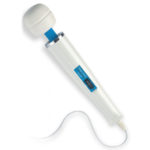
As two women who’ve had some experience on the receiving end of a speculum, we offered some advice to one reader about how to get over her fear of visiting a gynecologist. Below, actual-gynecologist Dr. Kate tries to further allay her fears as a woman who’s spent her career on the giving end.
You’re not alone. I see women every day who, because of things they’ve heard or past experiences, are terrified about having a pelvic exam. But most of them at the end of the exam say the same thing: “That’s it?” To have the same reaction, consider these 4 things:
1. Specify your fear.
Think about what you’re actually afraid of. Is it pain? The exam will likely be uncomfortable, but if you’ve had intercourse before, a pelvic exam shouldn’t cause pain. (If it does, TELL THE GYNO, so she can adjust what’s she’s doing.) Are you afraid of what the gyno may find? If you feel well, your testing will most likely be negative…and anything that the gyno DOES find, she can treat.
2. Knowledge is power.
You say that you walk yourself through the steps that you expect — but make sure you have good information (and not horror stories from “friends”). Planned Parenthood has a fantastic overview of what will happen. And know that the entire exam will take about 2 to 3 minutes…
3. Trust a friend.
The best way to find a good gyno is to ask friends who they like. I get many referrals these days from happy patients telling their friends to come see me. And it may help to have a friend there with you to hold your hand during the exam — your doc will make sure your lower half is draped so your friend doesn’t “see anything.”
4. Ask for information.
What you can’t see is the most scary, so ask the doc to put the head of the bed up so you can see her at all times. Ask to handle the speculum, so you can get a sense of how big it is (not as big as you think) and what it feels like in your hand. And have the gyno tell you what she’s doing at all times during the exam, so you’ll be prepared for each sensation that comes.
You can totally do this!
Dr. Kate

















Your medical profession has very different views to the rest of the world.
These exams cause so much despair, fear and embarrassment.
Are you aware that the vast majority of the world’s doctors DON’T recommend these routine gyn exams?
I asked my Dr after reading about these shockingly invasive gyn exams that are recommended for all US women from their teens (including virgins!)
My Dr said they are unnecessary in asymptomatic women and in fact, can be harmful. (they can lead to more invasive and potentially harmful testing, discomfort, psychological issues, low clinical value, avoidance behaviour etc)
I’m 45 years old and have never had a routine gyn exam. No Dr has ever even suggested it….
I’ve had one pelvic exam in my life – for symptoms (turned out to be nothing)
You all have far too many pap smears as well.
We’re offered smears from age 30 and then 5 yearly until around 60 (some women stop at 50 or 55) In the States most women end up having 55 or so in their lifetime…in Finland, the average would be 5-7 tests IN TOTAL….
It’s an unreliable test and all women are warned about the possibility of a false positive or false negative.
We’re also told it’s an uncommon cancer…some low risk women decline screening as the risks for them outweigh the benefits.
Annual and biannual smears mean LOTS of false positives and healthy women sent for colposcopy & usually biopsies.
Biopsies are not to be taken lightly – they can leave you with mental and physical problems…psychosexual problems, infertility, problems during pregnancy and pre-term delivery.
Our doctors don’t screen women younger than 30, as the risk to benefit ratio makes it unethical…they do more harm than good in that age range.
Because of the risks, all women must give informed consent before the Dr does the test.
Finland has the lowest rates of cervical cancer in the world and the smallest number of women sent for colposcopy/biopsies (and fewer false positives)
If you don’t want gyn exams….don’t have them…the vast majority of the world’s doctors are on your side. (Germany is the only other country that recommends them, as far as I’m aware)
We also don’t have routine breast exams until we’re in our 40’s…younger women have breasts that are hard to examine and so lots of false positives and biopsies are the end result…cancer in the under 40’s is uncommon as well.
No mammograms before 50…any earlier and you’re likely to face biopsies for benign things. Some women choose not to have mammograms as there are risks associated with testing.
False positives, unnecessary biopsies, surgery and treatment, the discovery of ductal carcinoma in situ…a slow moving cancer that usually doesn’t bother the woman, but once biopsied, it can become aggressive and once detected, the breast usually comes off or chemo starts. Google articles by UK breast cancer surgeon, Prof Michael Baum.
There has also been concern about new research by the Nordic Cochrane Institute that suggests that regular mammograms may INCREASE the risk of breast cancer…why?
They’re not sure – perhaps, the radiation and/or the squashing of delicate breast tissue.
I feel terribly sorry for all the women in the States who put themselves through this awful ordeal every year…and have been convinced by doctors that all of this is vitally important for their health.
The vast majority of the world’s doctors would disagree with your doctors recommendations.
Womanhood is not a disease.
You don’t need this level of medical intervention in your lives.
I know it would make me very unhappy.
Routine gyn exams are totally unnecessary…and may even harm you.
Pap smears…do your reading, consider your risk profile….if you choose to have smears, I’d suggest you look at some of the foreign programs that catch more cancer or just as much without sending huge numbers of women for biopsies for false positives….Finland, the Netherlands, the UK…
Basically, any country aside from the US or Australia. (the latter offers 2 yearly testing a couple of years after you start having sex…too frequently and too early….so almost 78% of their women face colposcopy in their lifetime…the States, it’s 95%)
See L. Koutsky, Cancer Prevention, Fall 2004, Issue 4 &
RMDeMay, “Should we abandon pap smear testing” American Jnl of Cl. Pathology 2000 which contains some interesting statistics.
Dr Angela Raffle, UK cervical screening expert released some data a couple of years ago – 1000 women need regular testing for 35 years to save ONE woman from cervical cancer. Her research can be found on line in the British Medical Journal.
Do your reading and look at practices in other developed countries.
Virgins are NEVER offered screening in any other country…just the States…I have no idea how that is justified medically or ethically.
Be very careful about agreeing to testing before you’re 25 or 30 and too frequently…3 to 5 years produces fewer false positives.
Good luck everyone….
that’s all fine, but if you have not have intercourse it hurts like crazy
this is all very good info because im just like fraidy